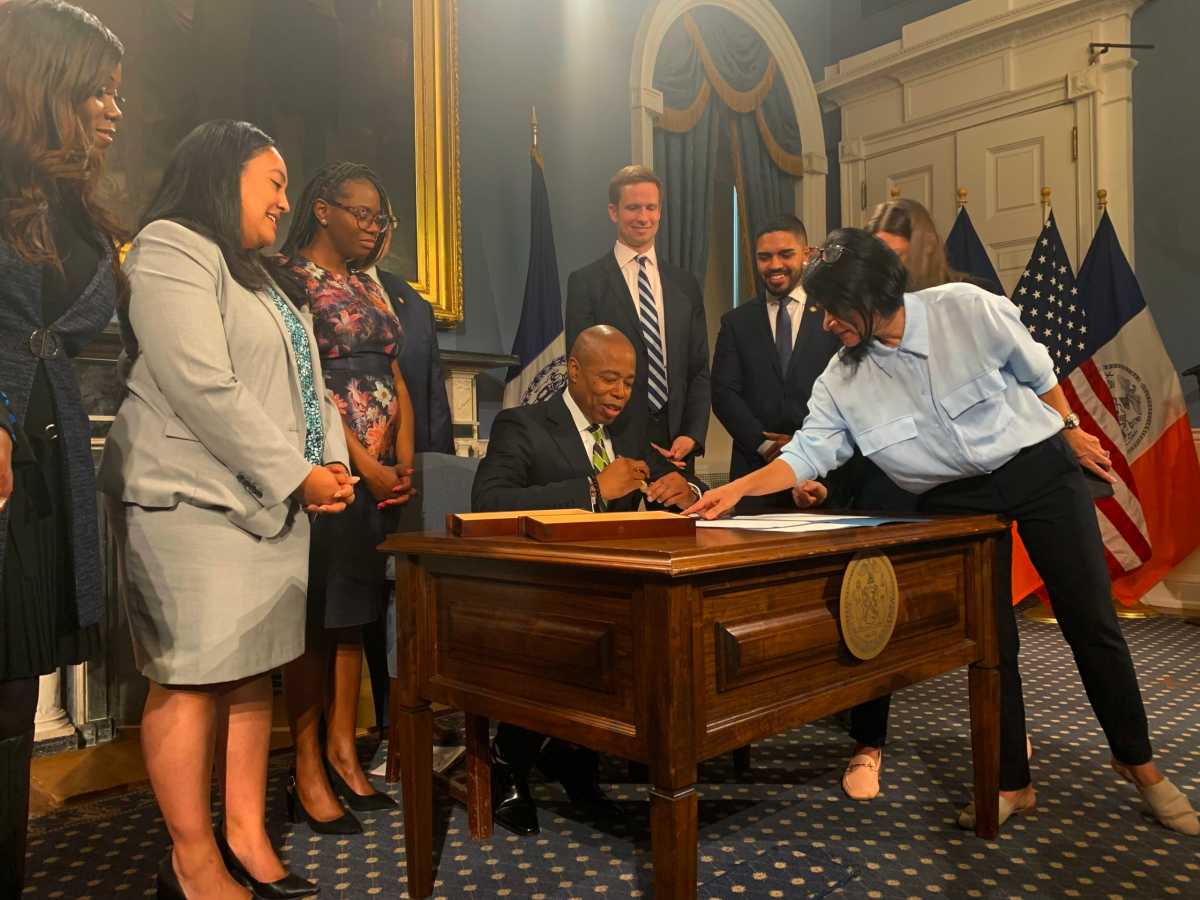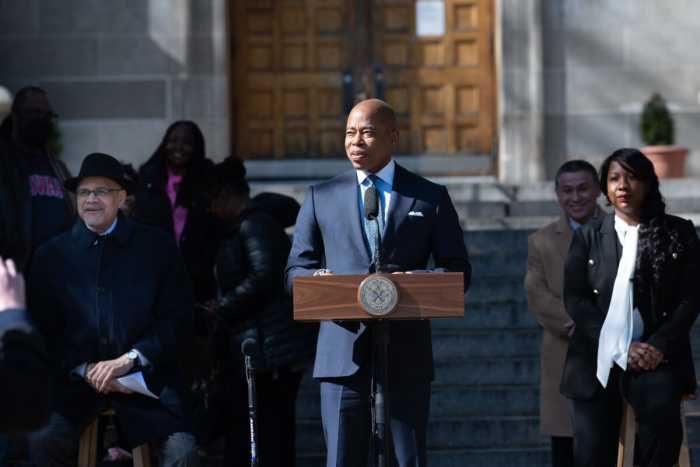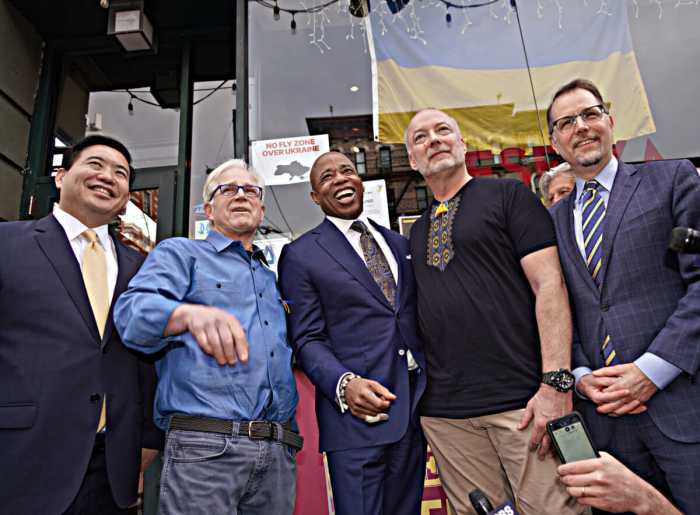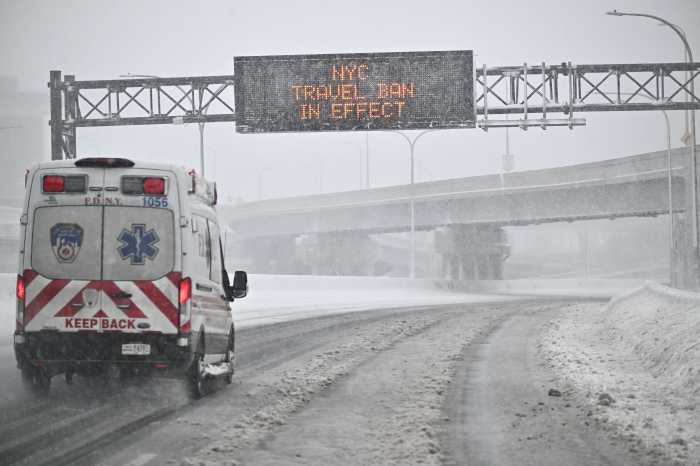Mayor Eric Adams moved his plan to re-juice the city’s economy coming out of the pandemic a step further Thursday by signing three bills into law that would amend a bill requiring businesses to be transparent about salary ranges in job postings and that established business improvement districts (BIDs) in Castle Hill and the West Village.
Adams said signing these bills helps move forward crucial parts of the blueprint to bring back the economy that he laid out earlier in the year related to supporting small businesses.
“Small businesses, we hear over and over again, they are the heartbeat of our community. For far too long, they’ve been overlooked,” Adams said. “We are here to really change that conversation and lift up our small businesses by these important pieces of legislation or bills that we’re signing.”
One of the pledges in the plan was to revitalize the city’s commercial corridors by creating more BIDs across the five boroughs.
“I promised that I would expedite the creation of business improvement districts in the city. You’ve heard this saying over and over again, ‘promise made, promise kept.’ Today we’re signing one of those promises into existence.”
Council Member Erik Bottcher (D – Manhattan), who sponsored the bill establishing the West Village BID, said a BID will help the stretch of 7th Avenue it will cover to deal with the trash buildup and wear and tear that comes from the high level of foot traffic there.
“Small businesses on this stretch have also struggled historically and BIDs provide help on all these fronts,” Bottcher said. “They provide supplemental sanitation services, beautification, landscaping, social services for unhoused New Yorkers, and they are a great partner to elected officials and solving issues as they arise.”
The mayor also spoke to the importance of amending the pay transparency bill – Local Law 32, which was initially passed at the end of last year but was amended last month after some Council Members raised concerns over several parts of the bill. One particular change Adams said will make the law work better, was allowing businesses to avoid fines if they rectify the issue of not properly showing salary ranges within a certain period of time.
“We heard far too often how this law was not clear,” Adams said. “We were not trying to be punitive. We were trying to change the mindset of those who were not listing the minimum and maximum salary. So, the important part that we were able to come to and resolve, employers who properly submit proof of curing their first violation will not be subject to civil penalties. But we’re not going to play the game that you can keep saying, ‘oops, I forgot to do so.’ No. But we’re going to use that to say, ‘if you do it again, then we will take those actions to send the right message for any future violations.’ This clarification makes sure that the law works for both brokers and employees.”
Some of the other changes to the original pay transparency law include making it applicable to jobs paying an hourly wage, pushing back its implementation date by six months and making sure it applies to all businesses with four or more employees.
Council Member Nantasha Williams (D – Queens), the amendment’s lead sponsor, said the amendment will both help assuage the small business owners’ concerns about the original law and help move the ball forward on achieving pay equity between men and women in the city.
“To my small businesses, these changes were common sense amendments, and this will ensure that you do not face undue harm,” Williams said. “To the advocacy community, and the unions who fought so hard for this measure, let us use this to build up the moving past and closing the deficit of $10,000 that we as women share or in [contrast] to what our male counterparts make on their salaries.”
Another one of the bill’s co-sponsors, Council Member Justin Brannan, said it’s important they took the time to amend the law because it could become a model for pay transparency laws around the country.
“The salary transparency bill is a really big deal. And as they say, ‘as goes New York City, so goes the nation,” Brannan said. “This is a first in the nation law. We already have people from other states reaching out and asking for the text because they want to steal it and do it in their town. So, that’s why it’s so important that we get this thing right.”










